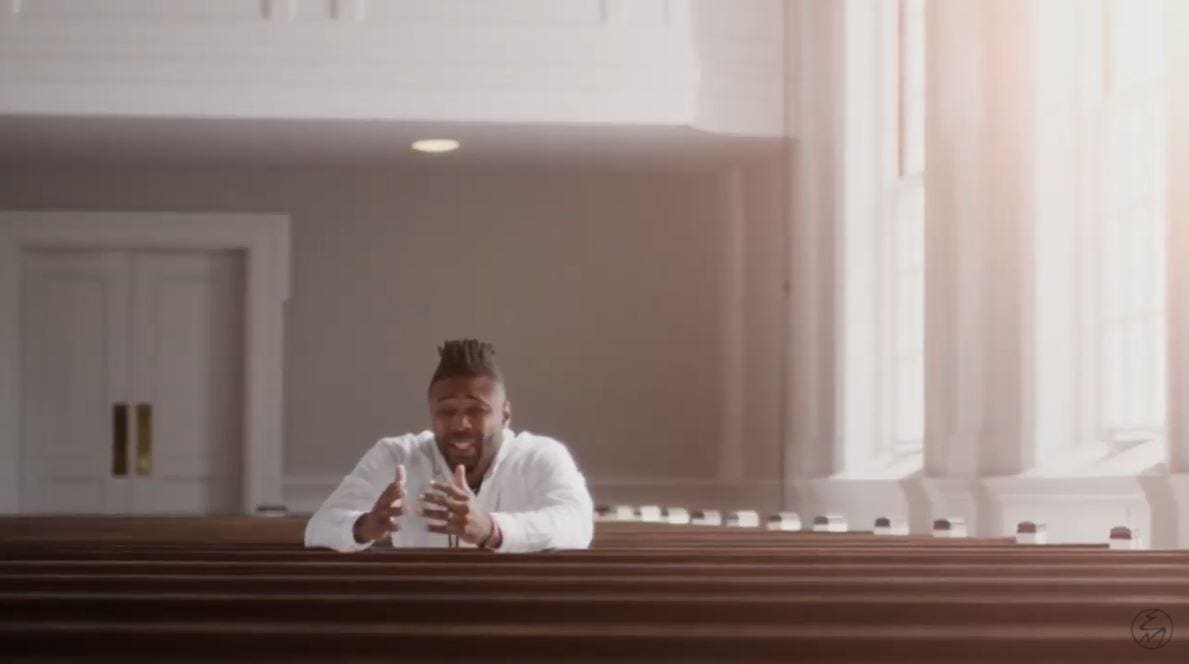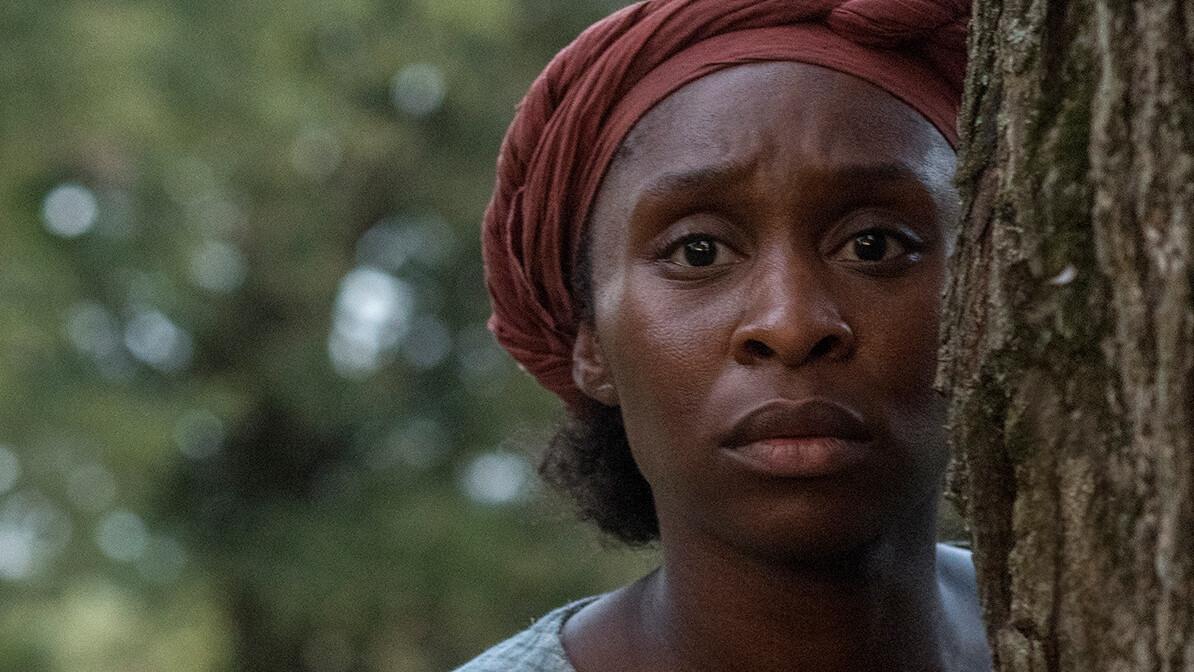- Home
- Entertainment
- Erskin: Is He Worth It? (Part 2)

Erskin: Is He Worth It? (Part 2)
John Farrell: How would you describe your sound?
Erskin: Hopefully my sound is good. There are several people that you’ll meet in this world. There are those people who are good; whether they think they’re good or not, that’s one issue. But then there’s people who maybe aren’t that good, but they think they’re good. I’m not sure which one of those I am. I just really enjoy singing these songs. I really enjoy the writing of the songs, the process of working together with producers and videographers and other writers. I have jumped into this with a lot of confidence and really enjoyed the process.
I would describe myself as an artist with some rather eclectic interests and yet at the same time, I think all of it, once you boil it down, is just following Christ and finding ways of expression in different places at different times. I’ve got some songs that are a little lighter in terms of content and then I’ve got some other songs that are equally as heavy. Then I’m thinking about a roster of songs that I’ve not recorded yet that deal with pro-life and some of those other issues.
I’m working on an EP right now called Just Dance that’s going to be pretty upbeat and it’s going to be pretty light in its content but as I’m thinking about releasing a pro-life song, I probably should wait for a while and give people another view of who I am and what we’re about before we dive into that topic.
I’m not afraid of controversy. Jesus created controversy everywhere He went because He was the standard of truth and as long as we point people to Christ, do it in a loving way, and yet hold the Son of man up, He’s going to bring people to Himself through that project.
JF: You worked with Nik Ripken Ministries on this music video. What is Nik Ripken Ministries and how did you first become affiliated with them?
Erskin: Nik Ripken Ministries is really the culmination. I was reading a biography about him because I interviewed him for a podcast that I was doing a few weeks ago. He’s known as one of the world’s leading experts on the persecuted church. His book, The Insanity of God, which tells his background story, some of his travels, and how he comes to this expression of “Is Jesus worth it?”, is followed up by another book called The Insanity of Obedience. That really is a manual for church workers to begin understanding their mission projects and their mission efforts in a way that will give them the best window into how to help believers, not only in persecuted areas, but in difficult ministry areas so that their persecution is not because we’ve done dumb things, but their persecution is because of Christ and their stand for Christ. It’s more of a wise instruction manual for missiology or a mission team considering how to travel into some difficult places.
The origin of how we got to meet one another, and work together was Nik Ripken going around and doing music conferences in which he was the keynote speaker over a series of lessons and weekends in which he was encouraging people, not just to buy material, but to encourage believers to live for their faith in the locations they find themselves in.
I’ve been able to partner with them on several conferences and have always enjoyed my time together with both Nik and Ruth and their wonderful family.
JF: Please tell me about your work with Holt International.
Erskin: Holt International flies over my banner. They are a brand sponsor of mine and I met them probably five or six years ago. One of their representatives approached me and said, “Hey, you are meeting a lot of people and we understand that in the context of your background, you and your wife have adopted children.” I said, “Well, yes, of course.”

That’s a part of our heartbeat and a part of how we see the gospel and the application of being adopted in the family of God. They said, “We’re a little bit different than some of the other mission agencies that are out there and compassionate agencies that are out there because we actually have kids who are adopted through Holt International.”
That really piqued my interest. Not that other organizations are not good. In fact, we encourage people to look into all the organizations that are advocates for children. But for us really that component there of adoption and being an advocate for adoption was one that kind of drew us to considering Holt International and being able to be a platform in certain instances for that ministry and for the wonderful work that they do in child advocacy.
JF: You’ve been all over the world doing missionary work. Could you please delve a little more into that and what you do on your trips to these far-off exotic places?
Erskin: In reference to missions, I will keep this general to protect the guilty. I think that from a very early age, like maybe 19-20 years old, I was encouraged to be part of mission teams that were beginning to go overseas. That was something that was relatively new.
As you know, geographically and statistically speaking, most African-American congregations don’t have a really big missional emphasis overseas. Certainly, in the area that I grew up in, that was not really on the radar. Just sort of a beautiful symmetry of how God worked in my own life. I was able to partner with some predominantly white congregations and I say that because in my song, “Black and White,” I kind of hearkened to this … the most segregated time in our country is Sunday morning at 11 o’clock and just kind of how in our Western world, we can grow up in these sort of two worlds and yet it’s the same God that we’re worshiping.
But having that influence on both of those really began to put this missional understanding in my mind of the great commission and what that means to follow through with that. Then how to practically begin fundraising and getting on the mission field and having some very unique experiences very early on. Then meeting my wife, who was at one time a missionary overseas in Zimbabwe for a couple of years. Really our heartbeat and the reason why I believe the Lord brought us together was to continue to do missions and encourage mission teams. We’ve literally led groups all over the United States, all over the world, and I’m currently looking at plans of going back overseas. It ranges from anything like teaching the Bible to basketball. I played college basketball. We’ve had some sports evangelism mixed in there along with a lot of music evangelism as of late and conferences. It’s been a variety of different things that we’ve been able to share to encourage believers around the world.
JF: Of all the places you’ve been, what was the most impactful experience you’ve had overseas during one of these trips?
Erskin: I almost remember every trip very vividly. It is said of LeBron James that he can go back and tell you the fourth quarter of very many of the championship and final games that he’s played in, play by play, with accuracy because he’s got a mental ability to think back through everything that happened.
I feel like that in reference to a lot of the mission efforts that I’ve been involved in. Really thinking through in some of those early days, being up in the mountains of Boa Vista in Rio de Janeiro and preaching revivals at these small churches and having translators there.
The Lord really broke me of some pride in some of the issues that were in my life. On many of the trips that I went to Africa, I remember on the plane ride there and back, the Lord beginning to put down some really foundational core things. In fact, there was a time when I was considering doing other things other than music and the Lord used one of those overseas trips and a group of believers who came almost unsolicited to talk to me about music when I was actually there doing a sports evangelism trip. So, the Lord has really powerfully guided our lives as a family and my life personally through many of these mission trips to figure out how I might be most useful in the kingdom of God. I would have to say all of them. They all have meant something, and they’ve all been something unique.
There have been some rich experiences, maybe to more specifically answer your question, in which I’ve been able to see believers, not just in persecution, like in some of our time in India, but some of the things that maybe in America we don’t see in terms of demon possession, in terms of some of the overt, spiritual, witchcraft, and darkness that the Bible describes as idolatry, but you’d begin to see it up close and personal and see what influence it has in people’s lives. That’s really kind of stark as a contrast to an American society.
Trending Now
Sign up today for your Inspiration Today Daily Newsletter
Supercharge your faith and ignite your spirit. Find hope in God’s word. Receive your Inspiration Today newsletter now!
John Farrell
John Farrell serves as the Digital Content Manager at Inspiration Ministries, where he oversees the planning, organization, and management of website content to support the ministry's global digital outreach. With a strong background in writing and editorial strategy, John ensures that the articles, devotionals, and discipleship resources on Inspiration.org are accurate, engaging, and aligned with the ministry's mission.
John has authored more than 1,000 articles, press releases, and features for Inspiration Ministries, NASCAR, Lionel, and Speed Digital. His versatility as a writer is also showcased in his 2012 book, The Official NASCAR Trivia Book: With 1,001 Facts and Questions to Test Your Racing Knowledge.
A graduate of Appalachian State University, John brings excellence and attention to detail to the digital experience at Inspiration Ministries. He lives in Concord, N.C., with his wife and two sons.
Related Articles
March 10, 2025
Finding Total Victory on the Road to Championship
I have been playing competitive golf for 55 years. Through the various stages of my life, my…
March 7, 2025
Average Joe Movie: SCOTUS, Praying Football Coach Backstory
When Coach Joe Kennedy knelt to pray at the 50-yard line after a high school football game, he had…
February 28, 2025
The Power of Story: A Muslim Journey to Hope
Storytelling is one of the oldest and most powerful ways to touch the human heart. Parents tell…
February 27, 2025
‘Harriet’ Movie: Courage, Freedom, Faith
Antebellum abolitionist Harriet Tubman had convictions and courage that helped free herself…
Next Steps To Strengthen Your Walk
Inspiration Today Newsletter
Supercharge your faith and ignite your spirit. Find hope in God’s word. Receive your Inspiration Today newsletter now!
Christian Articles
Find articles to strengthen your walk and grow your faith. We have a wide range of topics and authors for you.
Submit A Prayer Request
We are here for you. Simply click on the button below to reach us by form, email or phone. Together we will lift our hearts and voices with you in prayer.





